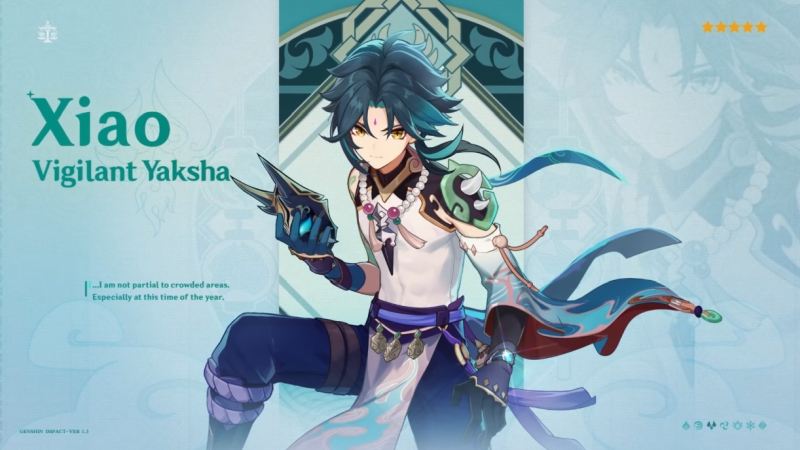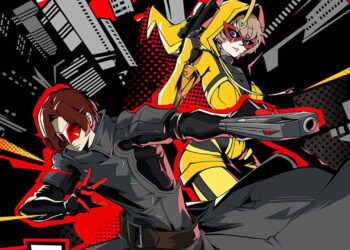Xiao is a yaksha who has fought in the Archon War and holds a high level of seniority among adepti. He has a reserved demeanor and has little intention of getting close to mortals.
Then, What is Yakshas wish quest? The Yaksha’s Wish is a World Quest in Genshin Impact.
…
The Yaksha’s Wish Walkthrough Chart.
| 1 | To start the quest, interact with the Ruin Tablet in the ruin located to the Northeast of Jueyun Karst |
|---|---|
| 2 | Find the clues to opening the stone tablet ▼Scroll for their locations |
Jan 13, 2022
What does C6 Xiao do? C6 Xiao is probably the best DPS in Genshin Impact. As soon as the sixth constellation is unlocked, Xiao can use his skill up to six times in one second, dealing massive damage. However, this effect is unavailable for most bosses or single-enemies, requiring two opponents to trigger.
Similarly, Does Xiao eat snow?
when xiao fights with the demons and is tainted with blood, he eats the snow. he feels his hot boiling insides washed away with cold snow.. Coldness has a paralyzing effect.
Table of Contents
How old is Diluc?
Genshin Impact characters’ ages, heights, and birthdays
| Characters | Ages | Heights |
|---|---|---|
| Diluc | 22 | 6’1″ / 185.4cm |
| Diona | 12 | 4’5″ / 134.6cm |
| Eula | 19 | 5’8″ / 172.7cm |
| Fischl | 16 | 5’0.5″ / 153.6cm |
Is yaksha a God? In Buddhist literature, the yakṣa are the attendants of Vaiśravaṇa, the guardian of the northern quarter, a beneficent god who protects the righteous. The term also refers to the Twelve Heavenly Generals who guard Bhaiṣajyaguru, the Medicine Buddha.
What is a Yaksha? yaksha, also spelled yaksa, Sanskrit masculine singular yakṣa, Sanskrit feminine singular yakṣī or yakṣinī, in the mythology of India, a class of generally benevolent but sometimes mischievous, capricious, sexually rapacious, or even murderous nature spirits who are the custodians of treasures that are hidden in the …
How do you get to Inazuma? To unlock Inazuma, you must complete the first part of “Archon Quest Chapter II: Act I – The Immovable God and the Eternal Euthymia.”. You must also be Adventurer Rank 30.
Why does Xiao wear a mask?
This inner suffering is present in the design of his skills: when Xiao uses “Bane of All Evil,” he dons his mask, which continually enhances his combat abilities but also continually drains his health. This demonstrates the great suffering he must endure as a consequence of using this power.
Is Xiao a girl or boy Genshin Impact? Despite being one of the most powerful Adepti in Genshin Impact, Xiao isn’t exactly blessed with vertical advantage. For some reason, his character model uses that of a teenage male in Genshin Impact, making him the same height as the teenage models.
When did Xiao get his vision?
3 Xiao. Xiao is another character that’s vision is linked to tragedy. While he does use the power of anemo to protect the people of Liyue, he probably didn’t receive it while working with Zhongli. Instead, he seems to have received the power when he was under the control of an evil god.
Does Xiao know Rex Lapis is Zhongli? It is implied that Xiao knows of Rex Lapis’ mortal form with evidence from his voiceline “About Zhongli”, referring to Zhongli as ‘Zhongli-daren’ and ‘Zhongli-sama’ in the Chinese voice and Japanese dub respectively.
Does Xiao swirl?
Xiao is of the anemo element, meaning the one and only reaction he can trigger is Swirl, which spreads and increases the damage of pyro, hydro, cryo, or electro.
Is Amber Genshin an adult?
The owner of Dawn Winery is 22 years old, while Outrider Amber is only 18. Figuring out their ages wasn’t an easy process, as anyone who’s played Genshin Impact will know that the game doesn’t divulge much info about its characters’ birthdays.
Is Amber 18 a Genshin? According to the post, Genshin Impact’s Diluc is 22 years old, while Amber is 18.
How old is ganyu? Genshin Impact: All Character Ages + Height
| CHARACTER | BIRTHDAY | ESTIMATED AGE |
|---|---|---|
| Eula | October 25 | 20-22 |
| Fischl | May 27 | 16 |
| Ganyu | December 2 | 3,000+ |
| Gorou | May 18 | 18-22 |
• Jan 14, 2022
Is Shiva a yaksha?
Shiva has no parentage, no place of birth. Nobody saw him as a young boy growing up. And if you look at the lore, it is very common to refer to Shiva as Yakshaswaroopa. The word Yaksha was used to refer to those kind of beings that are not human.
Who are the 5 Yakshas? In the in-game lore book Yakshas: The Guardian Adepti (archived on Honey Hunter), the five Yakshas are named Bosacius, Indarias, Bonanus, Menogias, and Alatus. We know that Xiao is Alatus based on his constellation name and the fact that the two share the nickname Conqueror of Demons.
Who is Kuber?
Kubera (Sanskrit: कुबेर) also known as Kuvera, Kuber or Kuberan, is the god of wealth and the god-king of the semi-divine Yakshas in Hindu culture. He is regarded as the regent of the North (Dik-pala), and a protector of the world (Lokapala).
Is Shiva a Yaksha? Shiva has no parentage, no place of birth. Nobody saw him as a young boy growing up. And if you look at the lore, it is very common to refer to Shiva as Yakshaswaroopa. The word Yaksha was used to refer to those kind of beings that are not human.
What is a Yasha?
Description. The yaksha (rendered yasha in Japanese) were an ancient class of usually-benevolent spirit from Indian myth, who presided over subterranean treasures and were worshipped as tutelary deities.
Is Inazuma a girl or boy? As a woman, Inazuma is warm and cheerful, in sharp contrast with her male persona. Also, regardless of gender, Inazuma seems to lack the general flamboyant disposition of an okama unlike most of the other okamas depicted in One Piece.
Can you bridge to Inazuma?
Genshin Impact Fun fact: you can make an ice bridge using cryo freezing abilities to reach Inazuma, but it takes some bugs and glitches to do so. Genshin Impact players are among the most dedicated of players out there. If they set their eyes towards a goal, they’d eventually reach it.
Can you swim to Inazuma? It’s pretty far out from the coast, so you’ll need to either glide or swim to reach it. Once onboard the ship, look for Bedou, the captain and speak with her to trigger a cutscene. Once that’s over, you’ll arrive in Inazuma and you’re free to start exploring the new region.
Don’t forget to share this post !












Discussion about this post